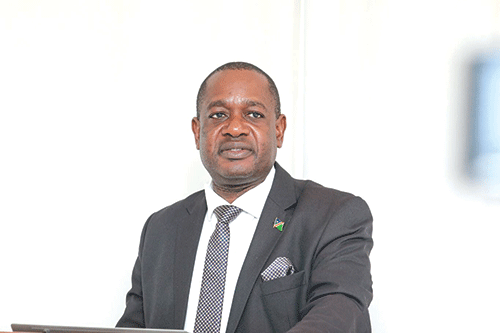SWAKOPMUND – Namibia is one of the three African countries that has not yet completed the SIM card registration process, according to the Minister of Information, Peya Mushelenga, who said his ministry has a mammoth task in making sure all SIM cards are registered by the deadline.
More than 185 other countries across the world have already implemented mandatory SIM card registration.
The minister was addressing the management and regional heads of the ministry during the official opening of the ministry’s annual planning session held yesterday at Swakopmund.
The Communications Regulatory Authority of Namibia (CRAN) introduced mandatory SIM card registration in mid-2022, and the government required all SIM cards to be linked to a Namibian ID, passport, or any other official identity document issued by the Namibian government or a foreign country with the aim of finalizing the process by the end of 2023. However, the process has been extended to March this year.
According to Mushelenga, the ministry must ensure that the SIM card registration continues to eliminate anonymous card users. Through this, he said, cybercrimes will be minimised and those committing crimes will be traceable.
“This is an exercise that has been done in many countries in the world. Only three countries in Africa, including Namibia, have not finished this exercise. Hence, we are tasked to complete it,” the minister appealed. Last week, the minister also revealed that Namibia currently has over 2.3 million active SIM cards; however, only 1.6 million have been registered (70.97%).
“We must protect our institutions and individual end-users from cyber attacks,” the minister said.
He also urged those in attendance to increase operational efficiency and reach targets according to their performance appraisals.
“It is the year of expectation where we are expected to improve decision-making that is well-coordinated at various levels. We want to ensure management has provided direction to staff members under them so that they can perform to the best of their abilities. Therefore, leadership is very important as it not only provides guidance and strategic direction but also ensures that you capacitate your staff members,” Mushelenga explained.
He also urged management to make use of the training budget available at the ministry to ensure the staff receive adequate training that will enhance service delivery for the ministry.
“Information should be provided so that people know what is going on in government. Therefore, we must redouble our efforts to effectively deliver on our mandate,” the minister appealed.


